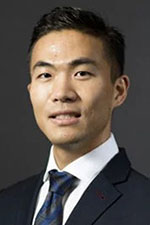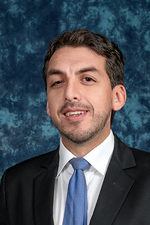Fellowships in Endourology
Fellowships in Endourology
URMC Urology Endourology Fellowships
Discover exceptional prospects for advanced clinical training, pioneering research, and immersive teaching through our two distinct Endourology fellowships: Minimally Invasive Surgery and Stones & Benign Prostatic Hyperplasia (BPH). Available in one- or two-year formats, each fellowship provides comprehensive experience under the guidance of expert faculty with access to cutting-edge facilities. Together, these programs prepare trainees to excel at the forefront of urological surgery.
What Makes the Endourology Fellowship Unique at the University of Rochester Medical Center?
Co-directors Dr. Scott Quarrier and Dr. Guan Wu share what is unique about the endourology fellowship program at the University of Rochester Medical Center and how it can help shape your career.
Also, Dr. Diane Lu and Dr. Thomas L. Osinski share their experiences as endourology fellows at the University of Rochester Medical Center and how it will benefit those seeking to continue their career in urology.
Clinical Responsibilities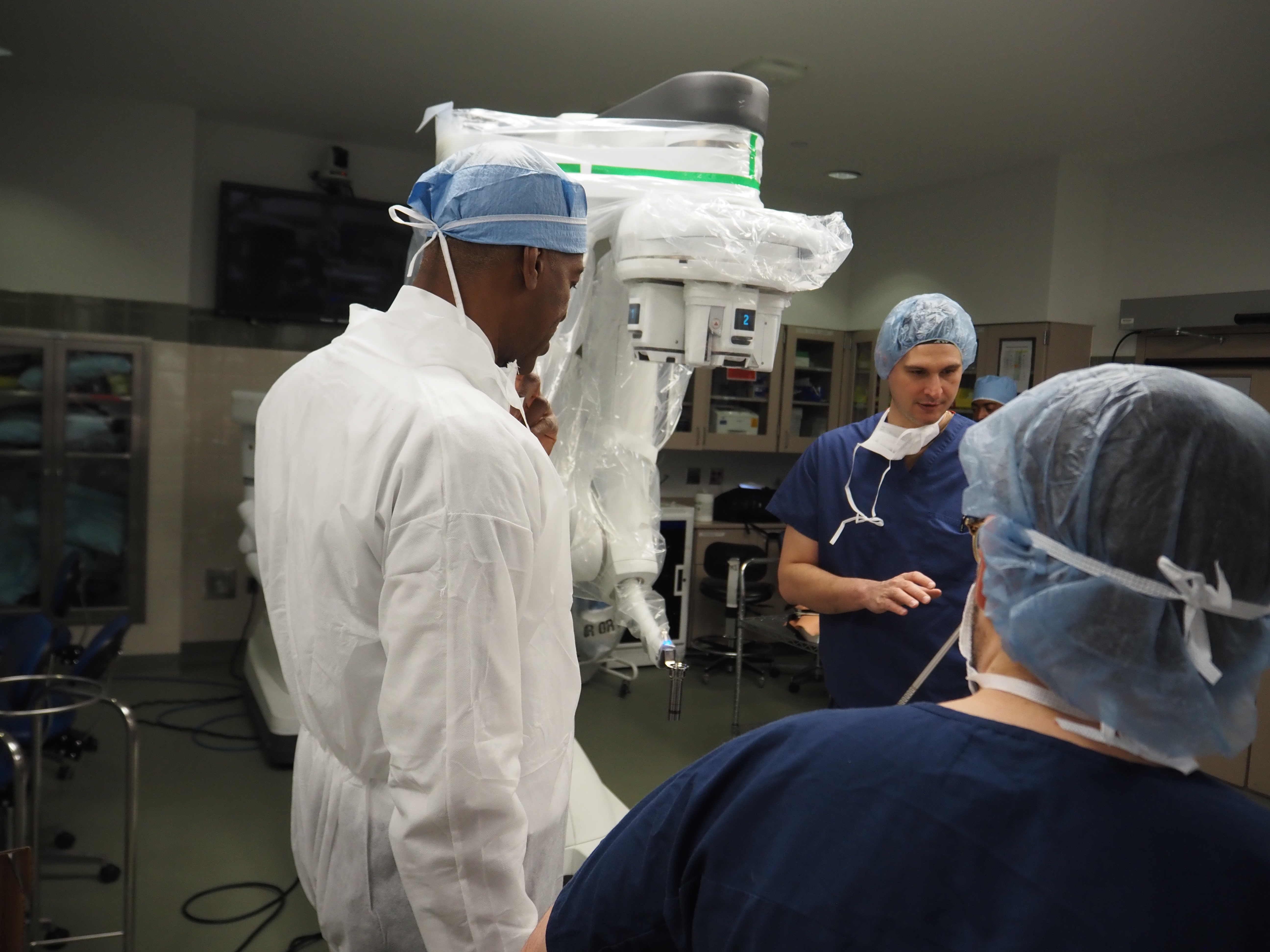
The University of Rochester Medical Center (URMC) has a leading academic urology department with a wide-reaching referral network, providing fellows with experience caring for a diverse and complex patient population.
Clinical Goals:
- Fellow involvement in preoperative planning, intraoperative treatment, and postoperative care.
- Focus on robotic procedures (prostatectomy, nephrectomy, cystectomy) and endourology procedures (ureteroscopies, percutaneous, nephrolithotomy, laser enucleation of the prostate).
Surgery Volume:
- In 2025, the program performed 400 HoLEP, 110 PCNL, and 2,000 ureteroscopy surgeries annually.
- 700 Robotic-assisted surgeries annually.
- Fellow collaborates with eight urologists for comprehensive exposure.
Hospital Affiliation:
- Main involvement at Strong Memorial Hospital (SMH), a 886-bed academic medical center.
- State-of-the-art operating rooms for advanced robotic procedures.
- Collaboration with two dedicated endourologists at SMH.
Additional Opportunities:
- Opportunities to operate at Highland Hospital (260-bed), less than 2 miles from SMH.
- Fellows at URMC can utilize resources across the entirety of the University of Rochester.
- In addition, there is a very active animal research facility with several full-time veterinarians and technicians, to allow laparoscopic animal surgeries.
Goals and Objectives
- Training in Robot-assisted procedures and advanced procedures for treatment of malignant and benign urological diseases
- Training in endourology and advanced procedures for treatment of urolithiasis, benign prostatic hyperplasia and other benign urological diseases.
- Provide a foundation for the development, evaluation, and delivery of emerging technologies and their educational curricula.
- Provide resources and mentorship for research in endourology, including clinical research, simulation, and device testing and validation.
Structure
Two-year fellowship with adherence to Endourological Society clinical and research completion requirements. This includes completing the requisite number of index operations as well as research protocols, presentations and manuscripts.
- Year 1
- 3 days clinical and surgical training
- 2 days academic (research and teaching activities)
- Year 2
- 4 days clinical
- 1 day academic (research and teaching activities)
Teaching and Educational Service
- The fellow will be expected to attend and contribute to monthly departmental journal clubs. This will include identification of new studies in the field prior to each meeting as well as critical analysis and participation in discussion.
- The fellow will give a minimum of 2 lectures to the residents or the department at weekly academic study meetings or weekly grand rounds regarding the latest literature relevant to the subspecialty.
- Participation in wet lab training sessions for residents will be part of the teaching requirement.
- Finally, hands-on teaching of residents and students during operative time is expected.
Simulation Training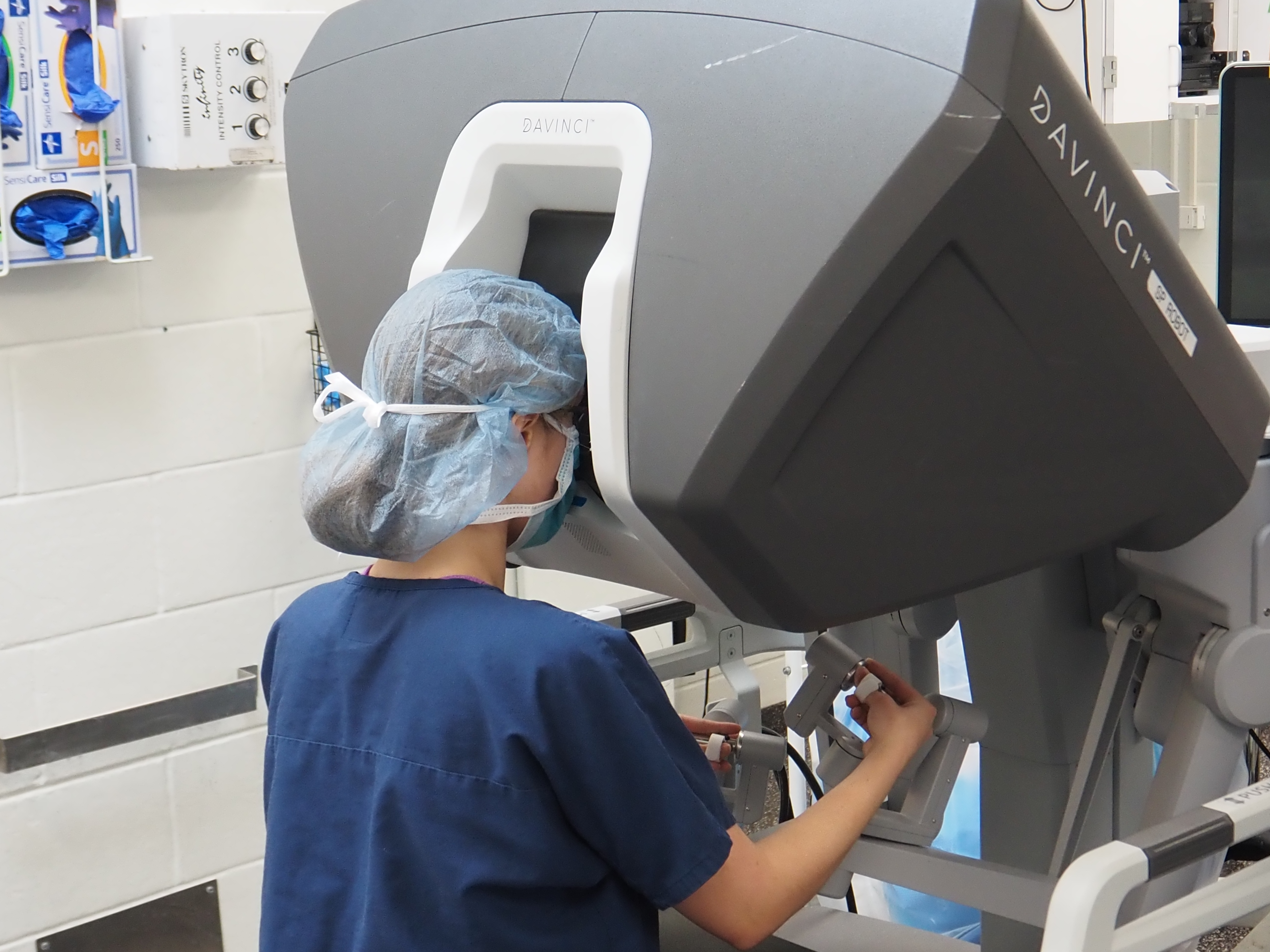
Comprehensive Simulation Curriculum:
- Engage in a proficiency-based simulation curriculum.
- Progress through basic skills training to procedural simulation on lifelike endourology models.
Adjunct to Clinical Education:
- Utilize simulation facilities alongside clinical and operative education.
- Enhance proficiency in live cases while applying skills learned in simulation scenarios.
Innovation in Surgical Education:
- Participate in projects focusing on simulation-based surgical education and training.
- Contribute to advancing the field by blending hands-on experience with cutting-edge technology.
Research
- The fellow will have protected time to pursue clinical and basic science research opportunities.
- The Department of Urology has facilities and faculty available to facilitate both basic science and clinical research.
- Completion requirements as set by the Endourological Society will be followed.
Clinical Research
Cutting-Edge Databases:
- Embark on a journey of innovation in Minimal Invasive Surgery and Stones with our evolving end-to-end database and registry software.
- Existing robust clinical databases in kidney stone disease, laser enucleation of the prostate, kidney cancer, prostate cancer, and patient reported outcomes.
- Seamless integration with EMR and REDCap for comprehensive data management.
Dynamic Research Hub:
- Leverage the UR CTSI as a catalyst for research ideas, offering workshops and mentoring sessions in grant applications and career development.
- Dedicated contacts within UR CTSI for health services research and statistical analysis support.
Prospective Trials and Collaboration:
- Join the department's commitment to high-quality, multi-institutional prospective trials.
- Clinical trial staff support for fellow participation in ongoing studies.
Mentorship and Research Protocols:
- Engage in mentorship with endourology attendings to craft and submit research protocols to the IRB.
- Monthly meetings for ongoing research supervision and collaborative idea development.
Innovative Research Culture:
- Anticipate a rapidly growing repository of endourology data, fostering both prospective and retrospective clinical research.
- Actively contribute to the development of a robust database through your involvement in groundbreaking research.
Simulation-Based Research
- Our team at the Surgical Research and Genitourinary Engineering (SURGE) Lab is generating the most high-fidelity models of genitourinary organs in the field.
- These models have been used extensively in resident training as well surgery rehearsal.
- The fellow will participate in ongoing and new research projects studying the value and efficiency of these models in training residents critical skills without the high-pressure situation or patient safety concerns of a live surgery. As the model technology and fidelity improve, so too will the applicability to training and rehearsal concepts.
Salary
Prerequisites
- Completion of an approved ACGME urology residency or foreign urologic training program equivalent.
- Valid New York State License
Interested applicants should forward their application (obtained through Endourological Society), CV, and 2 to 3 letters of recommendation with a cover letter to the attention of:
Scott Quarrier, M.D., M.P.H., and Guan Wu, M.D., Ph.D.
University of Rochester Medical Center
601 Elmwood Avenue, Box 656
Rochester, NY 14642
Phone: (585) 756-5469
Fellowship Program Coordinator Email: Regina_Vega@urmc.rochster.edu
Current Fellow
Past Fellows
Core Faculty
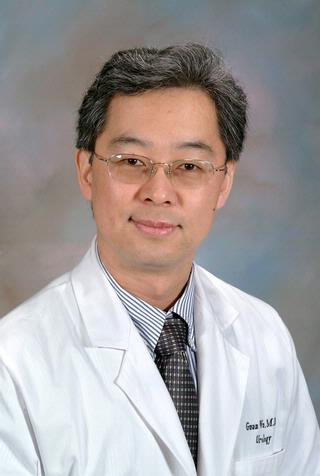
Dr. Guan Wu
Co-Director
Professor of Urology
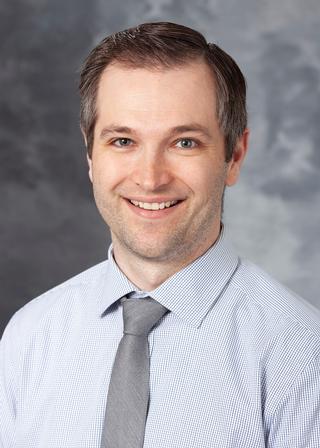
Dr. Scott Quarrier
Co-Director
Associate Professor of Urology
Other Key Faculty
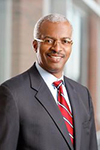
Jean V. Joseph, M.D., F.A.C.S., M.B.A.Winfield W Scott Professor and Chair, Department of Urology and
Professor of Oncology, Wilmot Cancer Institute
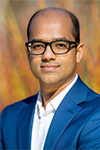
Rajat Jain, M.D.
Assistant Professor of Urology
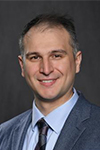
Thomas Osinski, M.D.
Assistant Professor of Urology, Director of the SURGE Lab
